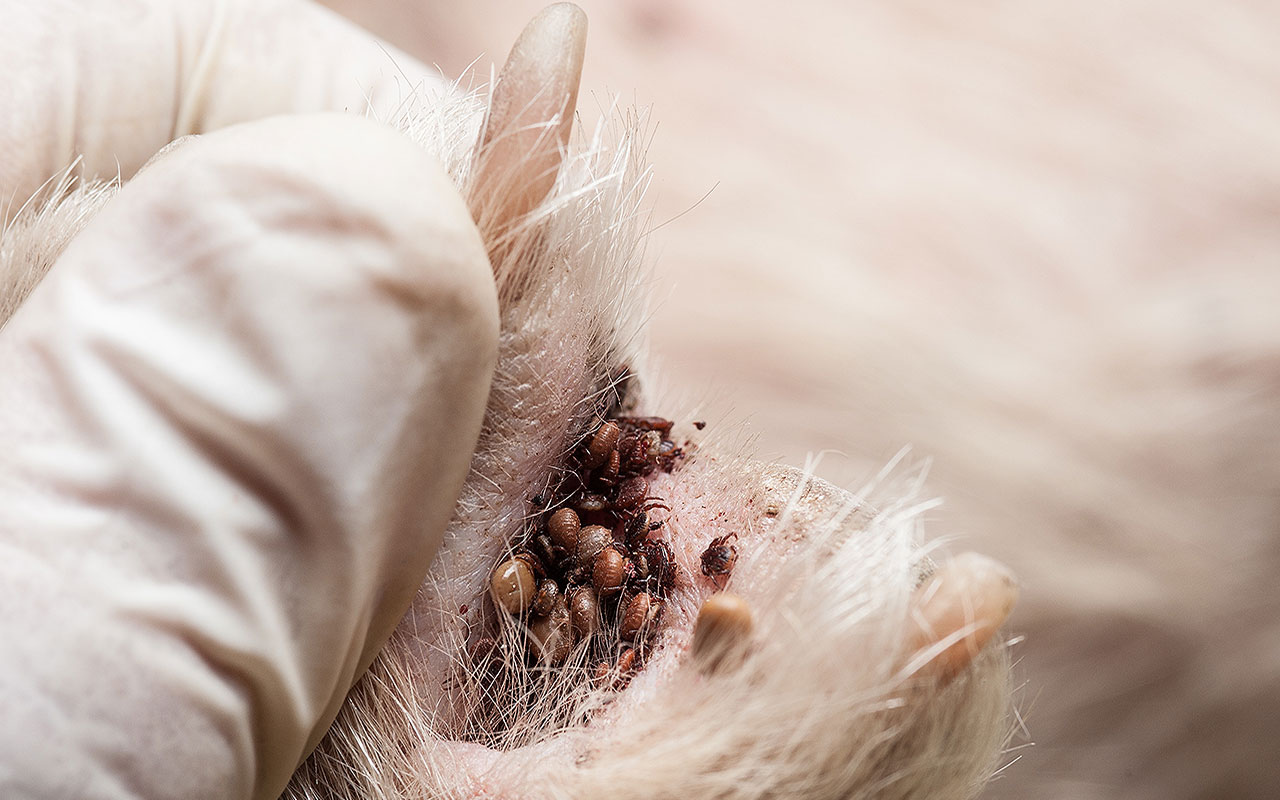
TICKS!
Ticks have eight legs so they are arachnids like spiders, scorpions and mites. They are ectoparasites, meaning they attach themselves to their hosts body as opposed to living inside of the host. Ticks are basically split into three families and are most closely related to mites.
There are some 900 known species of ticks worldwide with about 90 present in the U.S. Though you may find ticks just about anywhere in the world where a suitable host can be found, they are most prevalent in warm, humid areas, which facilitates their metamorphosis. Basically, ticks need a sustainable population of a host species and humidity that is high enough to keep them hydrated to survive in any given area. They get all the nutrition they need by feeding on blood and must have a blood meal to evolve from one stage of metamorphosis, or life stage, to the next. They can live a very long time between meals, which makes controlling ticks in your house or yard tougher than controlling many other pests.
Ticks do have a few natural predators: mites, nematodes and birds. And, of course, a really good bug man. Tick control can be a moving target as they are easily picked up and brought home when you take your dog to a friends house or to the park. They can, and do, migrate through and harbor in the cracks in the block walls around our yards and love to get up into our wall voids via the weep skreet where the stem wall meets the stucco. A home seal can be a huge help for this particular problem as that gap is treated and sealed if done correctly. Ticks are one of the few critters where we really do recommend a regular, ongoing service as they can be hard to get to and live a very long time which makes re-infestation a strong possibility. Interesting fact: the chalcid wasp, which is parasitic, lays their eggs in ticks (their hatch-lings kill the host) and has been experimented with as a natural tick control. You could also consider getting yourself a few guineafowl (a species of bird), which will consume an enormous amount of ticks if they can get them.
The bottom line is that if you have ticks you really should have them exterminated. They transmit several different infections caused by bacteria, pathogens, protozoa and viruses. These can include:
- anaplasmosis
- African tick bite fever
- babesiosis
- Bourbon virus
- Boutonneuse fever
- Colorado tick fever
- Crimean Congo hemorrhagic fever
- ehrlichiosis
- Flinders Island spotted fever
- Heartland virus
- heartwater
- Lyme disease
- Q fever
- Queensland tick typhus
- relapsing fever
- rickettsialpox
- tick-borne meningoencephalitis
- typhus
In fact, the Australian paralysis tick (among a few species) are actually venomous and can cause tick paralysis! None of that sounds like fun. So, if you’re dealing with ticks on your dogs, cats, humans or in your house, give us a call or fill out the contact form and let’s get you going on a tick-free environment today.
We offer safe and effective pest control services and bird control services throughout the west Metro Phoenix area, including Glendale AZ. We also service Anthem, Avondale, Buckeye, Cashion, El Mirage, Goodyear, Glendale, Litchfield Park, Peoria, Sun City, Sun City Festival, Sun City Grand, Sun City West, Surprise AZ, Tolleson, Waddell, Youngtown, North Phoenix, and West Phoenix.
